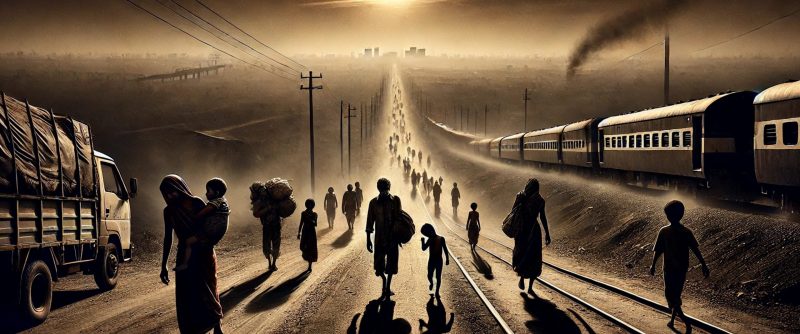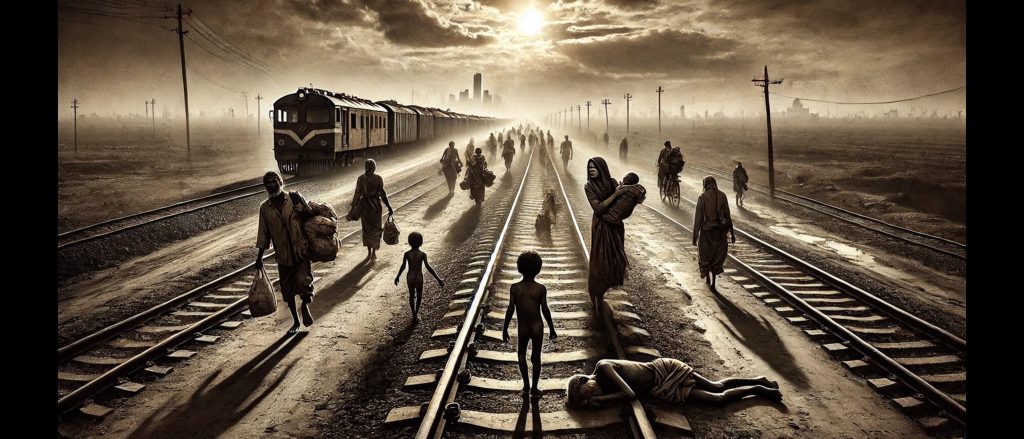
BHARAT KE BAAHUBAL: An Anthem For The Unseen
Some stories don’t make it to history books. They live in footprints on burning asphalt, in weary hands gripping a child too tired to cry, in eyes that stare at the horizon, searching for home.
The year 2020—COVID19 swallowed the world whole. Silence filled the streets, yet in that silence, a sound echoed—the shuffling of weary feet, the breathless struggle of those left behind. They walked because there was no other choice. No trains. No buses. No promises. Only miles of unforgiving road and the weight of an entire life strapped to their backs. Some collapsed. Some never rose again.
I watched, powerless, the news blurring into a parade of suffering. But words have a way of carrying what hands cannot. So I wrote. A song—not to mourn, but to remember. A tribute to those who toil in shadows, who build cities yet remain invisible within them.
Tapti garmi tu chale chala, Chalti aandhi tu chale chala
Na mite thake tu chale chala, Na jhuke na ruke tu chale chala,
Naap diya bharat bhu ko, Kadmo ne aisi misaal rachi,
Kahin lahu gira kahin aas mari, Kahin umeedon ki laash giri.
-their relentless struggle, their resilience, became the heart of this song.
Months later, as the country tried to restart, factories and businesses were ready to reopen, but the workers weren’t coming back. The fear and trauma of their journey home still lingered. Infrastructure projects stalled, industries stood still.
Yahan bhavano ko tune khada kiya,
yahan udyogon ko bada kiya…
—they had built our cities, our industries, and yet, when the time came, they were left to fend for themselves.
That’s when I got an opportunity to write an anthem—to appeal to these workers, to acknowledge their hardships, and to remind them of their strength. It wasn’t just about asking them to return; it was about recognizing their role as the backbone of our nation.
Tu chalta hai toh desh chale,
Tu tham jaaye toh desh hile…
—without them, everything comes to a halt.
And then, a voice—Sonu Nigam. He was in Dubai at the time, but distance meant nothing; technology bent to the will of art. Through wires and screens, the song took flight, pieced together like fragments of a broken world trying to mend itself.
The final result was more than just a melody—it was a tribute. A song that resonated with those who had walked unimaginable distances, who had endured hunger, exhaustion, and uncertainty. A song that honoured their strength and called them back, not just as workers but as the very force that drives the nation forward.
Aa laut ke aa tu laut ke aa,
Us ghar se is ghar laut ke aa…”
—come back, not just for the work, but for the home you helped build.
Bharat Ke Baahubal is not an anthem. It is a tear unshed, a whisper of gratitude, a plea to never look away again.

O Bharat ke Bhahubal
